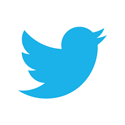being a frequent flyer
my colleagues and i on the 瑞士vs喀麦隆亚盘赔率
’ design and implementation team are on the road with our clients about 50% of the year. inevitably, we sometimes discuss our travel preferences. which airline has the best rewards program? which airport is the easiest to get in and out? and of course after many cancelled flights over the years we have strong opinions about who has the worst customer service!
it strikes me that air travel has become a highly personalized experience. want to choose your own seat? fly southwest. want a cheap ticket but willing to pay for bags? fly spirit. want your checked bags guaranteed in 20 minutes? fly delta. as i customer i’m able to prioritize variables important to me, and i can select airlines or airports accordingly.
despite these options, certain aspects of air travel are not personalized. no matter which airlines i choose, i hear the same safety lecture -- find your safety flotation device under your seat, put your oxygen mask on first before helping a child, etc. smoking is never permitted. all pilots must abide by the same air traffic control tower. in fact, there are nearly 1,400 federal regulations that apply to aviation!
the tension between a highly personalized experience and a highly regulated system illustrates two concerns we often hear from school leaders and teachers  :
:
-
if we personalize learning for students, it will be a free-for-all! as professionally trained and experienced educators, we are obliged to guide students’ learning. how can you ask us to give up this responsibility?
for both concerns, i think airlines provide a good (though imperfect) analogy.
can you imagine the chaos if each airline had its own safety standards? or if any wannabe frank abagnale could assume control of commercial planes? i would stop flying immediately.
or if any wannabe frank abagnale could assume control of commercial planes? i would stop flying immediately.
on the other end of the spectrum, despite operating in a highly regulated environment, airlines have found ways to offer a significant number of choices so customers feel more in control of the travel experience. they do things which make people choose that experience over another one.
it would be equally irresponsible of us to ask students to take control of their learning with no guidelines or boundaries. when we talk about personalized learning models and strategies, we’re not asking educators to throw out standards or teaching practices that they know to be successful.
and while there’s certainly policy work to be done to make personalized learning implementation easier for schools (see bellwether’s policy playbook for personalized learning as a starting point), every day -- within their current constraints -- our school partners find ways to personalize learning for students by giving them more control over their path, pace, and pedagogy.
personalized learning doesn’t invite us to ask students to pilot the plane. instead, we might invite students to our ‘frequent flyer program’ -- giving them greater choice and rewards over where and how they travel.
instead, we might invite students to our ‘frequent flyer program’ -- giving them greater choice and rewards over where and how they travel.
photo creadit : unsplash